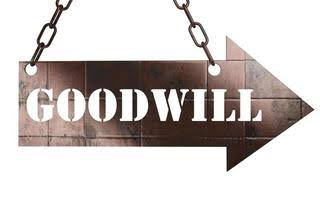GOODWILL AND ITS PROTECTION
By Dagnachew Tesfaye, Managing Partner at DMLF

The Commercial Code of Ethiopia Proclamation No 1243/2021 provides the definition of good will on Article 112. The definition connotes good will as a result from the creation and operation of a business and is of a value which arises from relations between a trader and third parties who may require from him goods or services. To understand good will more, it is better to look into the definition given under Black’s Law Dictionary:
A business’s reputation, patronage, and other intangible assets that are considered when appraising the business, esp. for purchase; the ability to earn income in excess of the income that would be expected from the business viewed as a mere collection of assets. • Because an established business’s trademark or servicemark is a symbol of goodwill, trademark infringement is a form of theft of goodwill. By the same token, when a trademark is assigned, the goodwill that it carries is also assigned…. “
[Goodwill] is only another name for reputation, credit, honesty, fair name, reliability.” … “Good will is to be distinguished from that element of value referred to variously as going-concern value, going value, or going business. Although some courts have stated that the difference is merely technical and that it is unimportant to attempt to separate these intangibles, it is generally held that going-concern value is that which inheres in a plant of an established business.

Such good will has to be protected from unfair competition. Instances of unfair competition include trademark infringement, dilution of goodwill and trademarks, use of similar trade or firm names, simulation of product packaging or configuration, false advertising, passing off goods for those of another, and theft of trade secrets.
Hence good will has to be protected. A trader may preserve his goodwill by instituting proceedings for unfair competition or by setting up the legal or contractual prohibitions provided in Article 29,39,53,118,130,131,166, and 167 of the Commercial Code.
A trader may claim damages under Article 2057 of the Civil Code from any person who commits an act of competition which amounts to a fault. Details on unfair commercial competition and its effects are prescribed by Trade Competition and Consumer Protection Proclamation 813/2013(TCCPP). No business person may, in the course of trade, carry out any act which is dishonest, misleading or deceptive, and harms or is likely to harm the business interest of a competitor. Article 8 of the TCCPP lists what it calls acts of unfair competition. These are: a) any act that causes or is likely to cause confusion with respect to another business person or its activities, in particular, the goods or services offered by such business person; b) any act of disclosure, possession or use of information of another business person, without the consent of the rightful owner, in a manner contrary to honest commercial practice; c) any false or unjustifiable allegation that discredits, or is likely to discredit another business person or its activities, in particular the goods or services offered by such business person; d) comparing goods or services falsely or equivocally in the course of commercial advertisement;e) disseminating to consumers or users, false or equivocal information including information the source of which is not known, in connection with the price or nature or system of manufacturing or manufa cturing place or content or suitableness for use or quality of goods or services; f) obtaining or attempting to obtain confidential business information of another business person through his current or former employees or obtaining the information to pirate his customers or to use for purposes that minimizehis competitiveness; g) other similar acts specified by regulation to be issued for the implementation of this Proclamation. Hence, a violation of any of the provisions under Article 8 of the TCCPP is a fault and gives rise to an extra-contractual liability
In any event, where an act of unfair competition has been committed, there are civil, administrative and criminal liabilities. The Commercial Code on Article 113-114 cross connects the remedies to itself, the Civil Code of Ethiopia and TCCPP. A trader may preserve his goodwill by instituting proceedings by setting up the legal or contractual prohibitions provided in Article 29,39,53,118,130,131,166, and 167 of the Commercial Code. Furthermore, a trader may claim damages under Article 2057 of the Civil Code from any person who commits an act of competition which amounts to a fault
Under the TCCPP, the Trade Competition and Consumer Protection Authority Adjudicative Benches has for example judicial power on Article 32 to : c)to order payment of compensation in accordance with the relevant laws to business persons victimized by acts of unfair competition committed in violation of the provisions of Part Two of this Proclamation.
The administrative measures within the TCCPP include ordering: a) the discontinuation of the act pronounced unfair; b) the taking of any other appropriate measure that enables to reinstate the victims competitive position; or c) the suspension or revocation of the business license of the offender. Any business person who has sustained damages arising from an act of unfair competition and claims payment of compensation may institute an action before the adjudicative bench of the Authority.
On the other hand, the Administrative Penalties are also provided in the TCCPP. Any business person who violates the provisions of Article 8 of this Proclamation(unfair competition article) shall be punished with a fine from 5% up to 10% of his annual turnover.
In conclusion, goodwill is protected by the relevant provisions of the Commercial Code, Civil Code and special laws including but not limited to trade name, trade mark and intellectual property laws, and trade competition and consumer protection laws. A business may consist of other corporeal or incorporeal elements but a business’s main element is its goodwill. The protection accorded to goodwill in the Commercial Code is a major indicative of the significance of the matter.
For business related queries, you may contact us at info@dmethiolawyers.com


